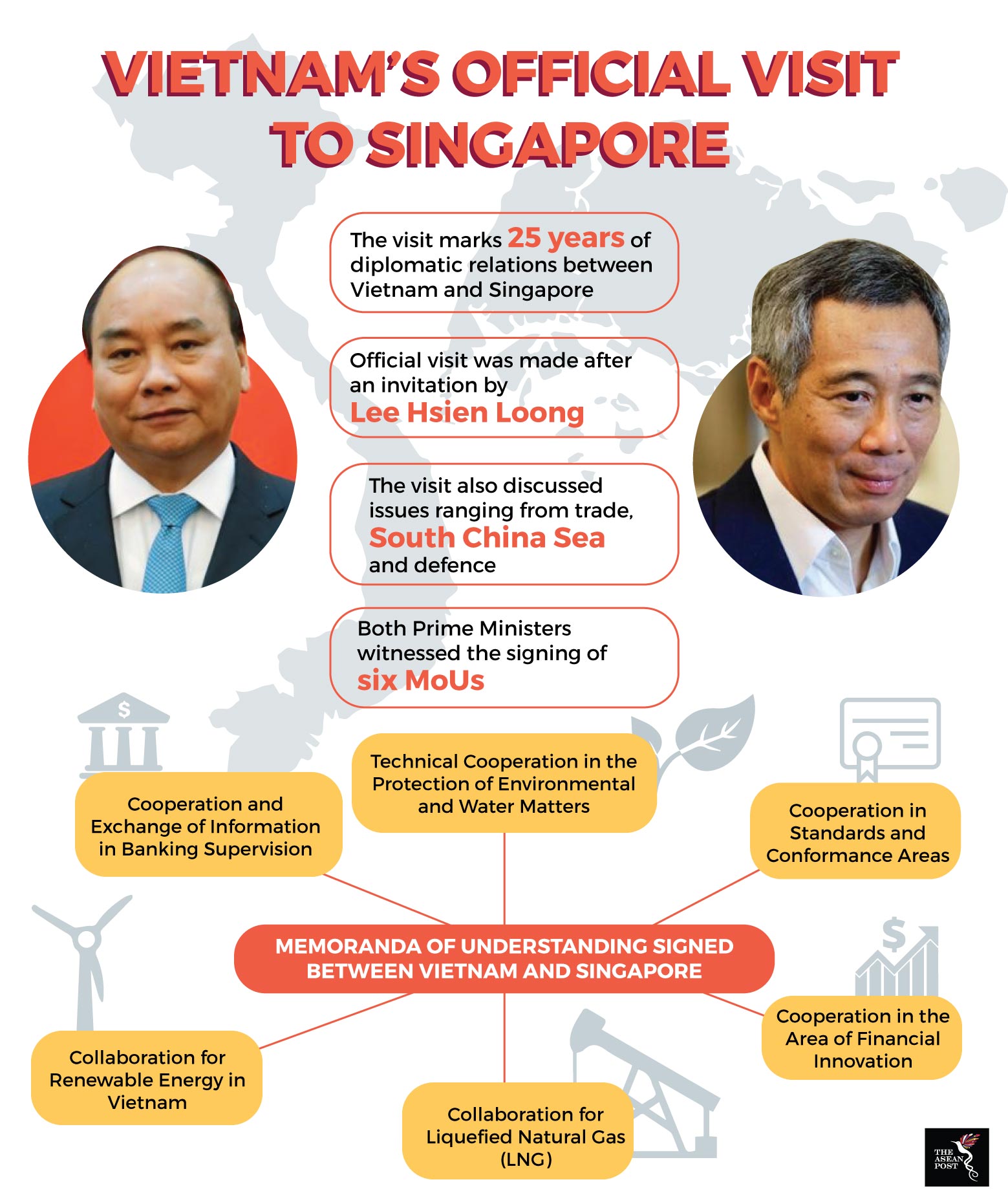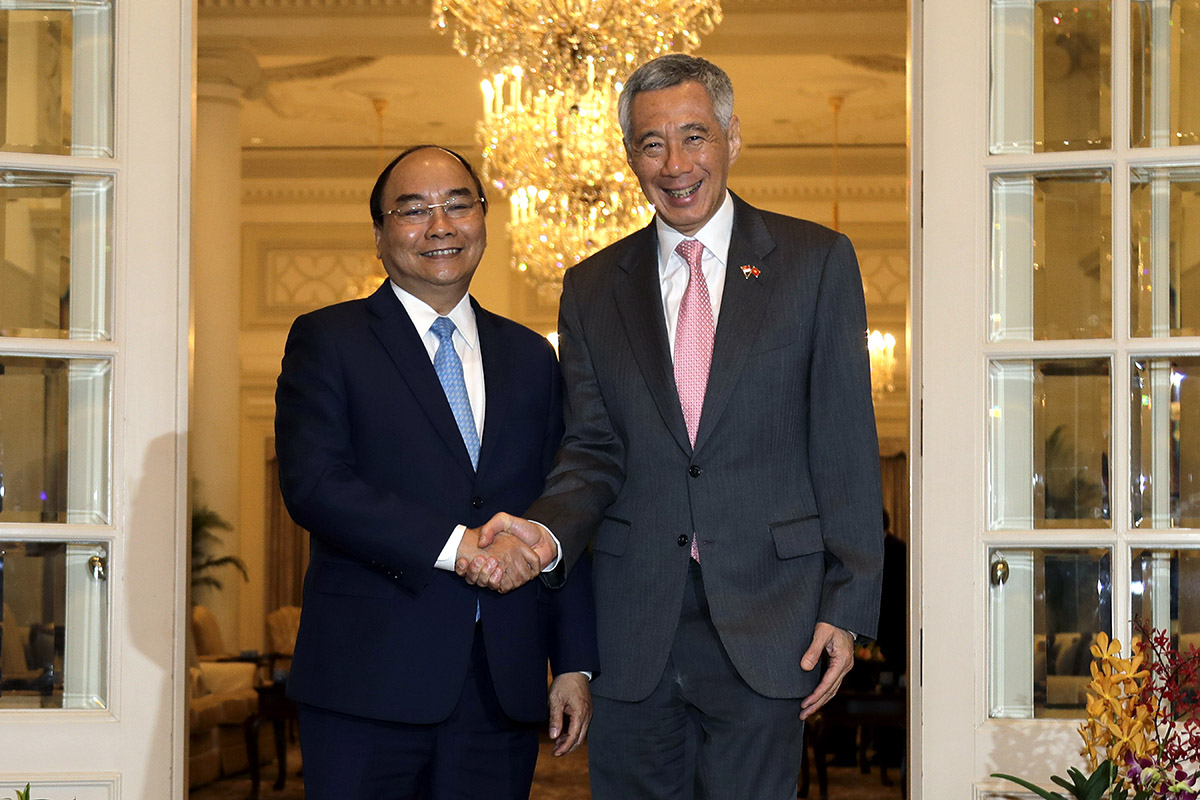Vietnam’s Prime Minister, Nguyen Xuan Phuc arrived in Singapore early this week for an official visit ahead of the 32nd ASEAN Summit. Nguyen Xuan Phuc made the official visit at the invitation of Singapore’s Prime Minister, Lee Hsien Loong. The visit was to celebrate the 45-year relationship between both countries since establishing diplomatic ties in 1973. The visit also marks the fifth anniversary of the establishment of the strategic partnership between Vietnam and Singapore in 2013.
The visit proved to be a fruitful one as both, Nguyen Xuan Phuc and Lee Hsien Loong witnessed the signing of six Memoranda of Understanding on renewable energy, liquified natural gas development, environmental cooperation, trade, banking and financial innovation. Aside from that, they also held bilateral talks where they discussed regional and international issues.
Smart cities
In his toast during a state dinner held in honour of Nguyen Xuan Phuc’s visit, Lee Hsien Loong welcomed the inclusion of three Vietnamese cities, Hanoi, Ho Chi Minh City and Da Nang, into the smart cities network.
“I visited all three cities during my two visits to Vietnam last year and was very impressed with their rapid urban development. Their inclusion in the smart cities network will add to ASEAN’s vibrancy," he said.
Establishing an ASEAN network of smart cities is one of Singapore’s main aims as chairman of ASEAN. According to reports, 10 ASEAN countries have put forward 26 cities to be part of the network. Lee Hsien Loong’s announcement is a major one since this is the first time he has publicly made known some of the cities to be included in the smart city network.

South China Sea
While Singapore might not have a stake in the waters of the South China Sea, Singapore is aware that any escalation of tensions that take place there will affect the whole region. On the other hand, tensions between Vietnam and China in the South China Sea are high, with Vietnam recently seen cosying up to the US military to counter Chinese influence in the area.
In a joint statement by the two countries, Singapore and Vietnam called for a peaceful resolution in accordance to international law and the 1982 United Nations Convention on the Law of the SEA (UNCLOS). Both nations also called for an implementation of a binding Code of Conduct in the South China Sea. While the statement might seem neutral in tone, it very explicitly mentioned the UNCLOS. The Permanent Court of Arbitration in The Hague have already ruled in 2016 that under the UNCLOS, China has "no historical rights" to the South China Sea. This may or may not be a subtle jab at China, but if disputes were resolved according to international law, China could stand to lose the most.
Business environment
Another one of Singapore’s priorities as Chairman is to strengthen the economic and financial resilience of the region. The global economic landscape at the moment is unpredictable, from trade wars, rising protectionism and the introduction of technology into the financial world, it is important that ASEAN nations remain resilient and adaptive to such changes. One of the MoU’s signed between Singapore and Vietnam provides a great example for the rest of the region on how cooperation can improve business resilience. The two countries signed an MoU on financial innovation which aims to facilitate joint projects between Vietnam and Singapore, encourage sharing of information on fintech trends and developments and help fintech companies understand the regulatory regime and opportunities in both countries.
Aside from that, Vietnam and Singapore also agreed to strengthen business ties. In a joint statement, the two countries emphasised the need to create a pro-business environment in both countries through “…the enforcement of regulations and consistent government policies, strengthening business-to-business links and facilitating the expeditious resolution of challenges faced by businesses.”
The outcome of the visit by Vietnam’s Prime Minister highlights Singapore’s exemplary performance as chairman. If Singapore can maintain such relations with the rest of ASEAN, then, we can expect a smooth ride during its chairmanship.
